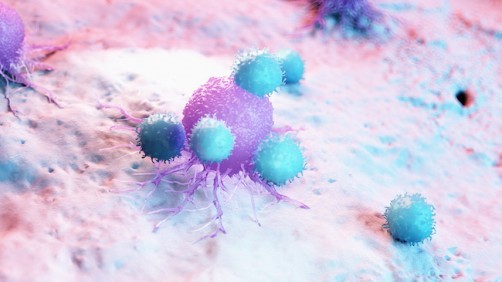Many Cancer Patients May Need Sequential Immunotherapies
 New research may explain why many cancer patients do not respond to anti-PD-1 cancer immunotherapies – also called checkpoint inhibitors. The team, led by scientists at La Jolla Institute for Immunology (LJI) and the University of Liverpool, reports that these patients may have tumors with high numbers of T follicular regulatory (Tfr) cells.
New research may explain why many cancer patients do not respond to anti-PD-1 cancer immunotherapies – also called checkpoint inhibitors. The team, led by scientists at La Jolla Institute for Immunology (LJI) and the University of Liverpool, reports that these patients may have tumors with high numbers of T follicular regulatory (Tfr) cells.
As such, treating patients with anti-CTLA4 therapies prior to anti-PD1 treatment may be a promising strategy.
In a healthy person, Tfr cells do the important job of stopping haywire T cells and autoantibodies from attacking the body’s own tissues. But in a cancer patient, Tfr cells dramatically dial back the body’s ability to kill cancer cells. Anti-PD-1 cancer immunotherapies boost the body’s cancer-fighting T cells, but in many patients, suppressive Tfr cells bring that progress to a grinding halt.
With this new understanding of what’s going on inside tumors, the researchers believe that first treating these patients with drugs to deplete Tfr cells may prime the body to respond to subsequent anti-PD-1 therapies and increase overall survival.
“Our data begin to point the way towards how we might be able to improve cancer treatments,” says study co-leader Christian H. Ottensmeier, MD, PhD, FRCP, a professor at the University of Liverpool and adjunct professor at LJI.
The study was published on June 24, 2021 in the journal Nature Immunology.